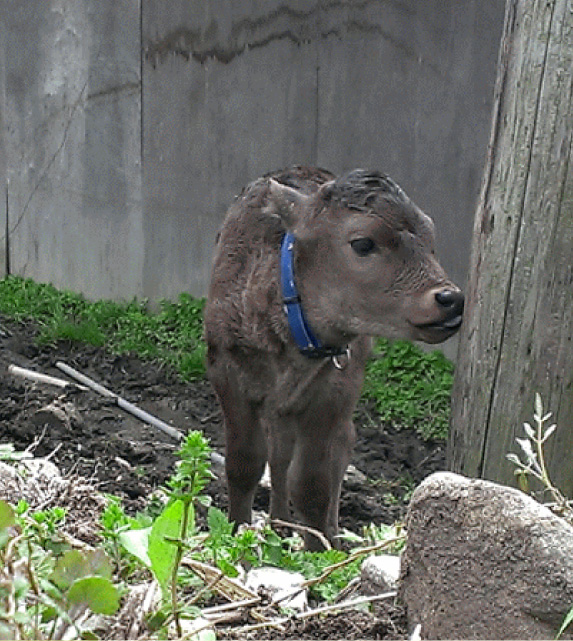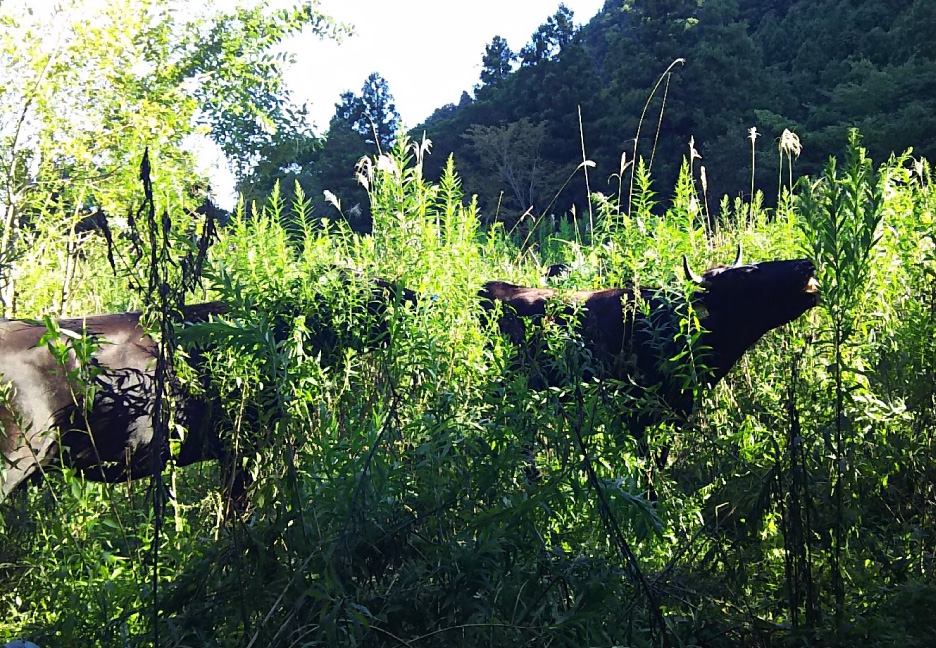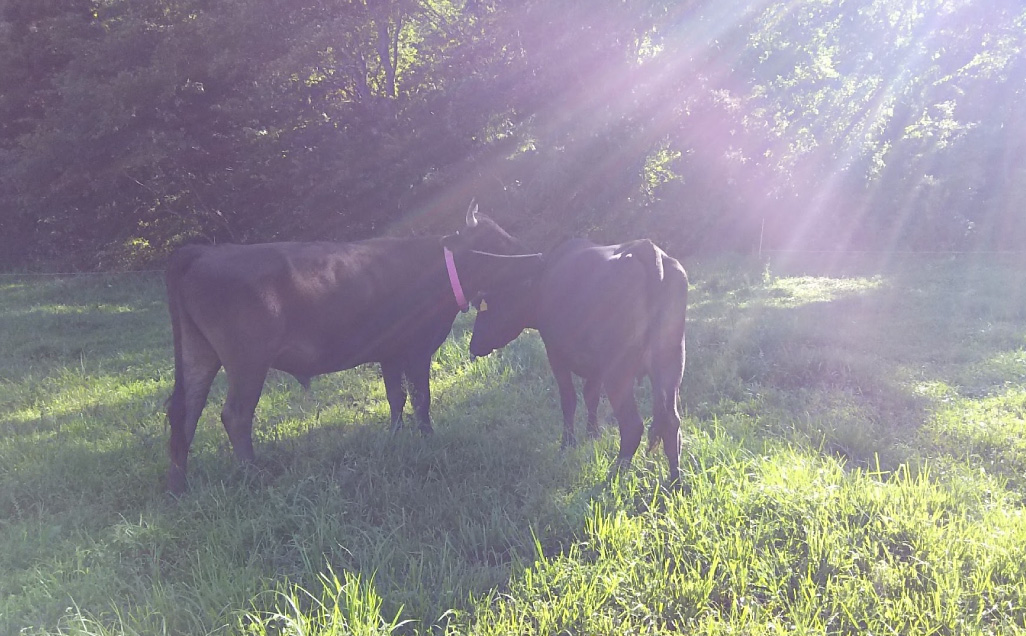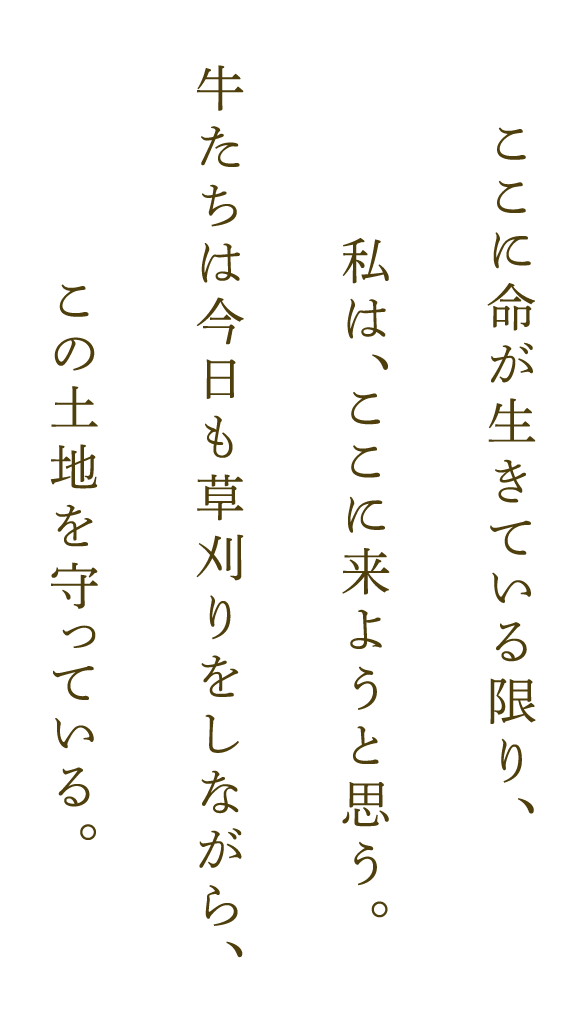
fter the Fukushima disaster in 2011, the residents of Ōkuma were forced to evacuate their town. Amidst chaos and confusion, hundreds of cows were left behind. After the daily supply of food and water was gone, their lives started to fade away, one after the other. Only a few of these cows managed to escape from the cowsheds that were damaged by the earthquake. They ran into the wilderness and survived.
However, these cows were soon captured. Having been exposed to radiation from the disaster they could not be taken outside the “Difficult-To-Return Zone”. It was made illegal to transport the cows outside the exclusion zone and, judging that taking care of the cows was not an option, the government asked the farmers to consent to their execution. Regardless of the fact that it was illegal to ship these cows, many small-scale family farmers in the area could not stand the idea of killing the cows that survived the disaster. However, they were not able to carry the large amounts of food and water that would be required to take care of these cows within the area.
The grief and hopelessness of this situation cannot be described. Satsuki Tani could not stand it anymore. These cows had miraculously managed to survive the disaster, and she wanted to save them from execution. Together with other farmers in the area, she rescued roaming cows one by one, and started to look for ways to take care of them in the extremely restrictive conditions of the exclusion zone.

As the years went by, paddy fields and gardens became covered with wild grass and thickets. Boars and other animals from the mountains entered the abandoned villages and houses. The authorities began to trap and kill these wild animals, and the amount of roadkill in the surrounding areas increased dramatically. These circumstances were extremely painful for the former residents, whose hope of a return to their regular lives and inherited homelands was beginning to fade.
While she was taking care of these cows, Tani realized that wherever these cows went, the land was fully “mown”. She thought: “Is this not a great way to preserve the town? This should be a good enough reason for the authorities to let these cows live!”.
Tani tested this idea together with former farm owners and specialists, and found that it was possible to feed and take care of the cows even in the exclusion area, as long as fences large enough were built properly. Cows would eat the tall growing grass and their feces would return to the land naturally. At the same time, these cows could restore the old ecosystem of the area: by eating the tall grass and bushes they would restore the buffer zone between the town and the mountains, preventing the advance of wild animals into the town, the proliferation of harmful bugs, illegal waste disposal and natural fire breakouts. The residents of the area were very happy with this plan.

“It depressed me to see my family home turning into jungle... but the boars are all around it... I would have never been able to do the mowing myself” says a former resident. By keeping the grass down, the cows brought light to the gloom of the former residents. When they came back, they found that the flowers they had grown in their gardens were starting to thrive again. This project has helped these cows, who have earned a new place in society. Many former family farmers have joined this project amidst the gloom of having seen their cows starve or be executed. With immense gratitude to all the locals who have supported this project and strived to keep these cows alive, our wish is to make sure this is achieved by giving these animal survivors of the Fukushima disaster a chance to co-create a place where humans, animals and nature can flourish together. By enjoying their second life, these cow survivors have become the heroes of a new chapter for the town of Ōkuma, where an alternative model of relationship is being brewed to bring hope to Fukushima, Japan and the rest of the world.
Furusato to Kokoro wo Mamoru Tomo no Kai Director
Satsuki Tani

ふるさとと心を守る友の会 (代表理事:谷さつき)
- FAX:
FAX:0245-05-4032
Email:moomowgarden@gmail.com
*Please note that I spend most of my time outside, and my reply may take some time. Inquiries in English may take some extra time.- Address:
- Tataki Agebeesu Room 217, 2-10, Taira Shirogane-machi, Iwaki-shi, Fukushima, 970-8026, Japan (In Japanese: 〒970-8026 福島県いわき市平字白銀町2-10タタキアゲベース217)
Google Maps: Search for “もーもーガーデン” for exact address. Closest station: Tomioka (JR Joban line, 15 minutes by car)



